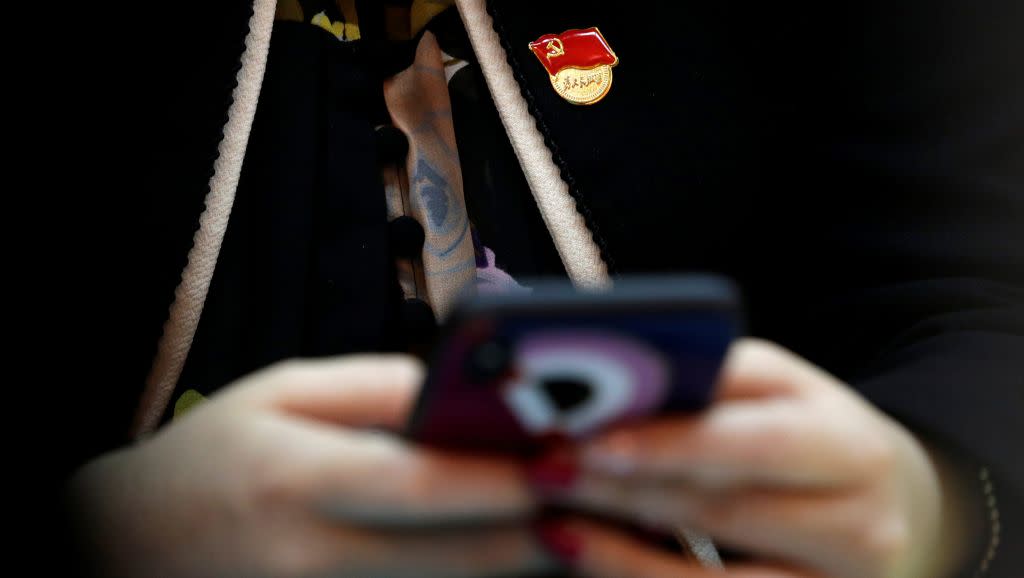China’s propaganda machine is spending over $1 million to buy influence on foreign social media

Protests in Hong Kong over the past 11 weeks have shown two things—Hong Kong people won’t easily bow to Beijing’s threats, and Beijing is working very hard to create an alternative universe of information.
More details are emerging about efforts by China’s state media and associated entities to turn opinion against the protest movement, which began in opposition to a bill that would have made it possible to extradite criminal suspects to the mainland.
The state campaign’s tactics have included posting images purporting to be of a “foreign commander” of the protests (which actually showed a New York Times journalist), rewriting a famous anti-Nazi poem to assail the protesters, releasing rap songs, and buying promoted tweets on Twitter.
The activity has been so robust—though not in the least sophisticated, and probably not very effective—Twitter on Aug. 19 said it had suspended 936 accounts originating from within China that “were deliberately and specifically attempting to sow political discord in Hong Kong, including undermining the legitimacy and political positions of the protest movement on the ground.” It also early suspended 200,000 “spammy” accounts tied to the activity.
Still, social-media influence operations by state-affiliated organizations look set to continue.
The same day as Twitter’s announcement, the Cyberspace Administration of China (CAC), China’s internet regulator, put out the shortlist for a contract to help it operate and grow overseas social accounts on platforms such as on Facebook. It didn’t specify the accounts in question. On Aug. 16, state news agency China News Services (link in Chinese) announced the winner of its project to build its social media presence overseas. Together, they are spending more than $1 million.

CAC’s bid announcement.
The CAC will pay 80% of its 5.8 million yuan ($820,000) contract to the operator at the start and the rest after one year of operation, according to its announcement. The project asked for a team of at least six who could “tell China’s stories with multiple angles, express China’s voice, and get overseas audience recognition and support for Xi Jinping Thought.” State-run newspaper People’s Daily and Guangming Daily are among the three final bidders.
The China News Service’s contract request has more specific goals. It wants to increase Twitter followers on its two accounts by 580,000 within six months. Among the new followers, at least 8% need to come from North America, Australia, and New Zealand. The bidding criteria says having a foreigner on the team could help the team get more points. (The bid goes to the team with the highest score.)
The agency now has two Twitter accounts, CNS1952 and Echinanews, which together have more than a million followers. The contract has been awarded to OneSight, a Beijing-based advertisement agency, which will get the 1.25 million yuan ($180,000) allocated from the government budget.
Am I getting it right? State media China News Service invites bids for contracts of purchasing Twitter followers, paying some 1.25 million yuan for 580,000 followers. https://t.co/xTwAqAS9Rp
— Kane WU (@GeniusWu) August 21, 2019
The campaign to gain influence on foreign social media seems to have begun weeks earlier. China’s Ministry of Foreign Affairs put out a similar project for 3.38 million yuan ($480,000) on June 21, five days after two million Hong Kong protestors called for full withdrawal of the extradition bill and for an inquiry into allegations of police brutality. The hawkish newspaper Global Times won the foreign ministry contract.
Since then, at least a dozen protests of have criss-crossed the city every weekend as demonstrators have broadened their demands to include universal suffrage. Last week protesters who shut down the airport over two days also tied up and beat two men, one of whom later turned out to be a Global Times reporter. The protests have been more moderate since then, with many in the movement upset over the beatings.
Calls for comment to the CAC and the agency helping with the bid went unanswered. China News Service hung up on a call for comment. The agency for CNS declined to comment on whether the government budget comes from the local or central government, citing confidential information.
China's Ministry of Foreign Affairs outsourced a project, which monitors and compiles significant China-related news reports on domestic&international media in multiple languages, social media posts 24/7, for RMB 3.38m (USD480k).
Who got the contract? Global Times. pic.twitter.com/5nLNvAuMwx
— Zhaoyin Feng 馮兆音 (@ZhaoyinFeng) August 20, 2019
China’s propaganda will need to navigate major platforms’ rules, which now ban promoted tweets by state-run news media. A research team with Canberra-based think tank Australian Strategic Policy Institute noted that most of the accounts suspended by Twitter this week are “old spam or marketing accounts which appear to have been recently repurposed (possibly bought) to push anti-#HK propaganda.”
In any case, China isn’t stopping there.
5. This is definitely not over. In just the last few hours since the takedown was announced, many new accounts have appeared (some newly created, some dormant accounts recently awoken) pushing exactly the same sort of content. Some are even daring Twitter to take them down. pic.twitter.com/3jwrC1PJxg
— Elise Thomas (@elisethoma5) August 20, 2019
Sign up for the Quartz Daily Brief, our free daily newsletter with the world’s most important and interesting news.
More stories from Quartz:

